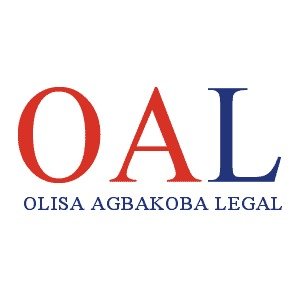Best Tax Increment Financing Lawyers in Apapa
Share your needs with us, get contacted by law firms.
Free. Takes 2 min.
List of the best lawyers in Apapa, Nigeria
About Tax Increment Financing Law in Apapa, Nigeria
Tax Increment Financing (TIF) is an innovative funding method used by municipalities to stimulate economic development in specific areas. In Apapa, Nigeria, TIF allows local governments to finance development projects by utilizing future tax revenues that are anticipated to increase due to improvements. Such projects might include infrastructure enhancements, new construction, or renovation endeavors aimed at revitalizing the urban landscape and increasing property values.
Why You May Need a Lawyer
Engaging a lawyer for Tax Increment Financing in Apapa is crucial for several reasons. Firstly, navigating the complex local laws and regulations requires expertise to ensure compliance. Secondly, if you are a developer or investor looking to initiate a TIF project, a lawyer can assist in the negotiation and drafting of agreements. Thirdly, if you are a property owner affected by a TIF district designation, legal counsel is beneficial in understanding your rights and obligations. Finally, disputes arising from TIF projects may necessitate legal representation for resolution.
Local Laws Overview
The legal framework governing Tax Increment Financing in Apapa is shaped by both national and local laws. Key aspects include the governmental authority to designate TIF districts, the criteria for project eligibility, and the allocation and use of funds generated through TIF. Local government councils play a significant role in the approval process, and policies focus on ensuring economic benefits, addressing public infrastructure needs, and minimizing potential negative impacts on the community.
Frequently Asked Questions
What is Tax Increment Financing?
Tax Increment Financing is a public financing method used to subsidize urban redevelopment, infrastructure, and other community-improving projects through future tax revenue gains from increased property values.
Who can initiate a TIF project in Apapa?
TIF projects can typically be initiated by local government authorities or private developers in cooperation with the local council.
How can TIF benefit the community?
TIF can lead to improved infrastructure, increased property values, job creation, and a more attractive urban environment, enhancing the quality of life for residents.
Are there risks associated with TIF?
Yes, risks include overestimated future tax revenues, displacement of residents, and financial strain on public services if not properly managed and executed.
What types of projects are eligible for TIF?
Projects that qualify often include infrastructure improvements, housing developments, commercial revitalization, and other community-enhancing activities.
How is a TIF district established?
A TIF district is established through proposals submitted to local authorities, who assess alignment with development goals before approval and designation of the district.
How are TIF funds used?
Funds generated are used for covering costs associated with the approved project, such as construction, public infrastructure, and redevelopment activities.
Can TIF impact existing local taxes?
Yes, while property taxes within the TIF district continue to be collected, the increment in tax revenue is earmarked for paying off TIF-funded projects rather than general municipal services.
What is the duration of a TIF district?
The duration can vary but is typically set for a period during which sufficient increment revenue can pay back the project costs, often ranging between 10 to 20 years.
What should property owners know about TIF?
Property owners should understand potential changes in tax assessments, impacts on property value, and opportunities for property improvement within a TIF district.
Additional Resources
For further insights and assistance, consider reaching out to the Nigerian Investment Promotion Commission (NIPC), Lagos State Ministry of Physical Planning and Urban Development, or local chambers of commerce. These organizations provide guidance and support for navigating TIF-related issues.
Next Steps
If you require legal assistance with TIF in Apapa, begin by consulting with a lawyer experienced in real estate and financial law. This can be done through local law firms or bar associations that can provide referrals. It is also advisable to participate in local government meetings or public forums addressing TIF to remain informed about potential projects impacting your interests.
Lawzana helps you find the best lawyers and law firms in Apapa through a curated and pre-screened list of qualified legal professionals. Our platform offers rankings and detailed profiles of attorneys and law firms, allowing you to compare based on practice areas, including Tax Increment Financing, experience, and client feedback.
Each profile includes a description of the firm's areas of practice, client reviews, team members and partners, year of establishment, spoken languages, office locations, contact information, social media presence, and any published articles or resources. Most firms on our platform speak English and are experienced in both local and international legal matters.
Get a quote from top-rated law firms in Apapa, Nigeria — quickly, securely, and without unnecessary hassle.
Disclaimer:
The information provided on this page is for general informational purposes only and does not constitute legal advice. While we strive to ensure the accuracy and relevance of the content, legal information may change over time, and interpretations of the law can vary. You should always consult with a qualified legal professional for advice specific to your situation.
We disclaim all liability for actions taken or not taken based on the content of this page. If you believe any information is incorrect or outdated, please contact us, and we will review and update it where appropriate.










